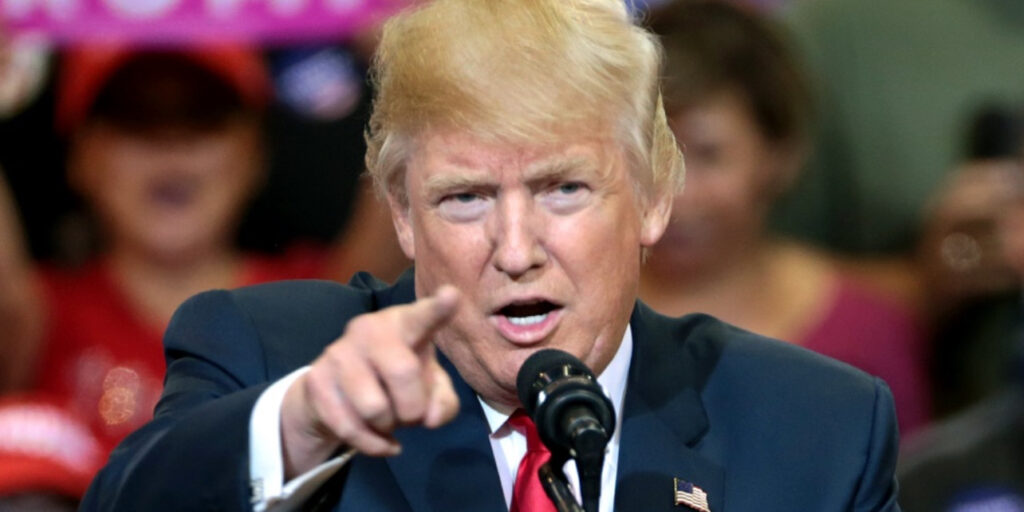UK exports to the US saw a significant rise of nearly £500 million in February, marking an increase of almost 10%.
This surge came as American businesses rushed to import goods before the implementation of new tariffs by US President Donald Trump.
According to the Office for National Statistics (ONS), UK goods exports to the US reached £5.9 billion in February, continuing a three-month upward trend.
This increase coincides with President Trump’s latest announcement that all British goods imported to the US would be subject to a 10% blanket tariff, with certain products like steel, aluminium, cars, and car parts facing a 25% levy.
William Bain, head of trade policy at the British Chambers of Commerce, confirmed that UK companies were indeed boosting exports to the US in anticipation of the upcoming tariffs.
He added that securing trade deals with the US, eliminating trade barriers with the EU, and tapping into markets in the Indo-Pacific would be crucial in minimising the impact of the new tariffs on UK businesses.
Despite the early boost in exports, several UK industries, including spirits, automotive, and retail, are bracing for a potential impact.
Diageo, the world’s largest spirits manufacturer, has already warned of a £76 million hit to its profits from the tariffs. Similarly, car manufacturers, which export vehicles worth £8.3 billion annually to the US, are expected to face challenges as tariffs on car exports take effect.
Retailers like JD Sports, Dr Martens, and Asos, with substantial sales in the US, could also see a reduction in profit margins due to the new tariffs. Analysts have expressed concerns that these sectors could be among the hardest hit in the coming months.
In positive news, the UK economy grew unexpectedly by 0.5% in February, following a stagnant January. This growth, despite global trade uncertainties, reflects resilience in the UK economy.
George Roberts, a dealer at finance firm Ebury, highlighted that despite the tariffs, the US remains the UK’s most significant export market, nearly double the size of its nearest competitor.
However, he noted that key sectors such as automotive and pharmaceuticals could face difficulties due to the increased tariffs, just as the UK economy navigates ongoing growth challenges.
The ONS noted that the February data does not yet reflect the direct impact of the new tariffs. The three consecutive months of export growth post-US election may suggest changes in trader behaviour, but caution is advised when interpreting monthly fluctuations, as they can be erratic.


